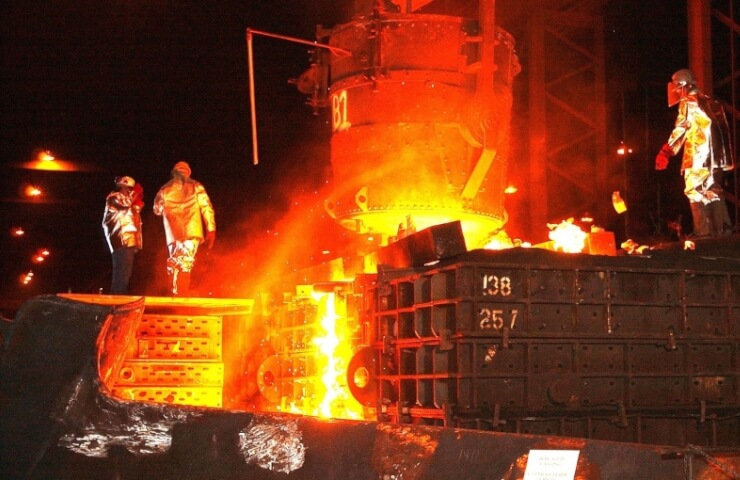Steel prices in both Russia and Ukraine are expected to decline over the course of 2022, pushing local steel mills' profits back to average in 2023, according to Fitch Ratings.
The factories in the analyst's region will remain competitive due to their low cost, which ensures high utilization during downturns and windfall profits during cyclical peaks. However, the shift to zero-carbon steel production and the risk of higher taxes for Russian companies in the long term could affect their cost position, according to a new report by Fitch Ratings, Russian and Ukrainian Steel - Expert Assessment.
The unprecedented excess of steel prices relative to production costs has led to a sharp increase in profits for steel companies in 2021, creating a large margin of safety for leverage. Free cash flow of Russian flat products producers will remain negative due to large dividends and a peak in capex, but Fitch Ratings expects the debt burden to remain within the sensitivity range. EVRAZ plc (BB + /Positive) is expected to reduce leverage following the sale of coal assets, as well as higher performance and lower earnings volatility. It is also predicted that Metinvest BV (Metinvest, BB- /Stable) and Interpipe Holdings Plc (Interpipe, B /Stable) will maintain a comfortable rating margin.
Russian steel mills maintain their lead in cost despite the recent increase in taxes on steel and raw materials. However, frequent tax revisions or further tax increases could put pressure on the sector. The medium-term risk for steel producers is the European Union's Carbon Border Management Mechanism (CBAM) and domestic carbon taxation, which will affect most regional steel producers as they are carbon intensive.
Russian steel producers are incorporating emission reduction targets into their strategies that can maintain high investment levels even after the current investment cycle. The growing focus on decarbonisation has already prompted EVRAZ and PJSC Severstal (BBB /Stable) to sell their coal assets, which, once the deals are completed, will reduce their self-sufficiency in raw materials. Metinvest, on the other hand, increased its stake in coal assets to a controlling stake.




